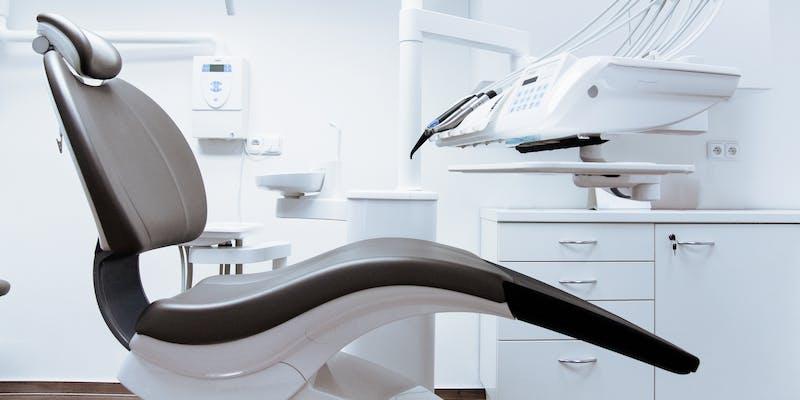Original or Traditional Medicare, called Medicare Parts A and B, is necessary for all older than 65 when paying medical bills. Part A mainly covers hospital stays, skilled nursing facility stay sessions, surgery operations, and hospice care, among other home health care services. On the other hand, Part B covers many forms of medical care beyond hospitalization, such as office visits, outpatient treatments, preventive programs, and equipment and supplies. One is usually eligible to join Medicare three months before one turns 65.
Medicare Parts A and B cover some medical costs but not all. That is why many people search for Medicare Advantage. This option is famous as private insurance often provides more benefits, sometimes for less money. However, a recent study published by the Office of the Inspector General has found that some patients enrolled in Medicare Advantage may have been denied access to life-sustaining treatment.
Although standard Medicare does cover some medical treatments and equipment, it is not comprehensive. Supplemental policies and Medicare Advantage plans may help cover these gaps. When planning for retirement, these Medicare covers choices might be crucial for handling unexpected medical costs.
Outpatient Medication
Original Medicare does not include outpatient pharmaceutical coverage. Medicare Part D is an optional supplement to Original Medications that some health plans may cover for those retired. When you enroll in Medicare or when your prescription coverage becomes effective, you can sign up for Medicare Advantage and Part D simultaneously. Beneficiaries can modify their plans during the open enrollment period throughout each year. Medicare Part D and Medicare Advantage plans have different prices and Medicare coverage. Thus, it is essential to use the Medicare Plan Finder tool to assess these two options as an individual prescription.
Dental Care

Checkups, cleanings, fillings, denture fabrication, and most tooth extraction treatments are not usually covered by original Medicare. Medicare Advantage plans usually cover some of the cost for basic dental treatment, such as cleanings and X-rays but only up to a certain yearly maximum, normally about $1.500. More comprehensive Medicare coverage could be provided by a dental discount plan or standalone dental insurance. Alternatively, you can accumulate money in an HSA before enrolling in Medicare. You can use the funds in an HSA at any age tax-free for different dental and medical costs; however, once you enroll with Medicare, no more contribution is possible.
Routine Vision Care
Medicare does not usually pay for routine vision treatment like eye examinations or glasses. However, there are exceptions, such as yearly exams for those with diabetes or glasses after particular kinds of cataract surgery. Vision coverage is available in some Medicare Advantage plans. Additional options include vision care alone or dentistry and vision combined. When you enroll in Medicare, the money from a health savings account can be used for vision-related expenses like glasses and sunglasses without being taxed.
Hearing Aid
Medicare does not pay for regular hearing tests or hearing aids, which may be expensive—up to $3,250 for each ear—if not taken care of. Nevertheless, some Medicare Advantage plans cover hearing aids and tests to ensure correct fitting. Hearing aids can be pricey, but there are discount programs that could help you cut costs. Just like with vision and dental care, you could use the money deposited in your health savings account before enrolling in Medicare to pay for hearing aids and any related expenses.
Medical Care Abroad
With a few notable exceptions, such as getting treatment on a cruise ship close to a U.S. port, Medicare does not often cover medical care when traveling outside the U.S. Nevertheless, there are Medigap policies that will pay for 80% of your foreign emergency care expenses, up to a certain amount. Certain Medicare Advantage also covers emergency treatment overseas plans. Alternatively, travel insurance should be explored with the Medicare coverage helpline. This could contribute towards offsetting some of the medical bills you may incur overseas, even for costly emergency transportation using aircraft or helicopters.
Podiatry
Standard foot treatment, including callus removal, does not come under Medicare covers. However, Medicare Part B does pay for diabetic neuropathy testing and treatments; it also covers certain foot injuries or disorders such as hammertoe, bunion, and heel spurs. If your foot treatment is not fully covered by Medicare, opening a separate savings account can be helpful.
Cosmetic Surgeries
Medicare does not normally cover elective cosmetic procedures such as belly tucks or facelifts. Reconstructive plastic surgery after an accident or during recovery following another medical procedure (say, breast reconstruction post a mastectomy) is considered, though. Therefore, an individual should open a savings account that they can use to handle elective cosmetic surgery expenses.
Other Treatments Excluded From Medicare

Massage Treatment
Massage treatment is often sought by many individuals to alleviate their chronic pain, but Original Medicare typically does not provide coverage for it. Although, in the short term, there are promising results for massage therapy, its long-term efficacy was not as conclusive. Chiropractic services, physical therapy, and occupational therapy for alleviating pain will be covered by Medicare under specific circumstances. For specifics, you should contact your Medicare Advantage plan, although they may cover massage treatment. If massage treatment is not reimbursed, you could pay for it yourself. Additional Medicare-covered methods of pain treatment should be explored with your healthcare practitioner or Medicare coverage helpline.
Nursing Home Care
Medicare can also cover short-term stays at rehabilitation facilities under certain circumstances, such as the need for inpatient physical therapy after hip replacement surgery. However, for long-term care in a nursing home or an assisted living facility, if your health requires such moves, Medicare does not cover the custodial fees attached to these services. The costs for nursing home care can be high as they average around $90,00 per year for a semi-private room and even more than that figure of over 175 thousand dollars annually for having your private room. Nevertheless, these vary based on the area where people will go into such homes or what specifically sort thereof one decides upon.
Planning nursing home care involves several choices and decisions that are not easy to make. Those with little income and savings may find some help in covering these expenses from Medicaid. It’s wise to investigate every possible route and consult a financial planner or healthcare consultant to handle this complex aspect of health planning better.




